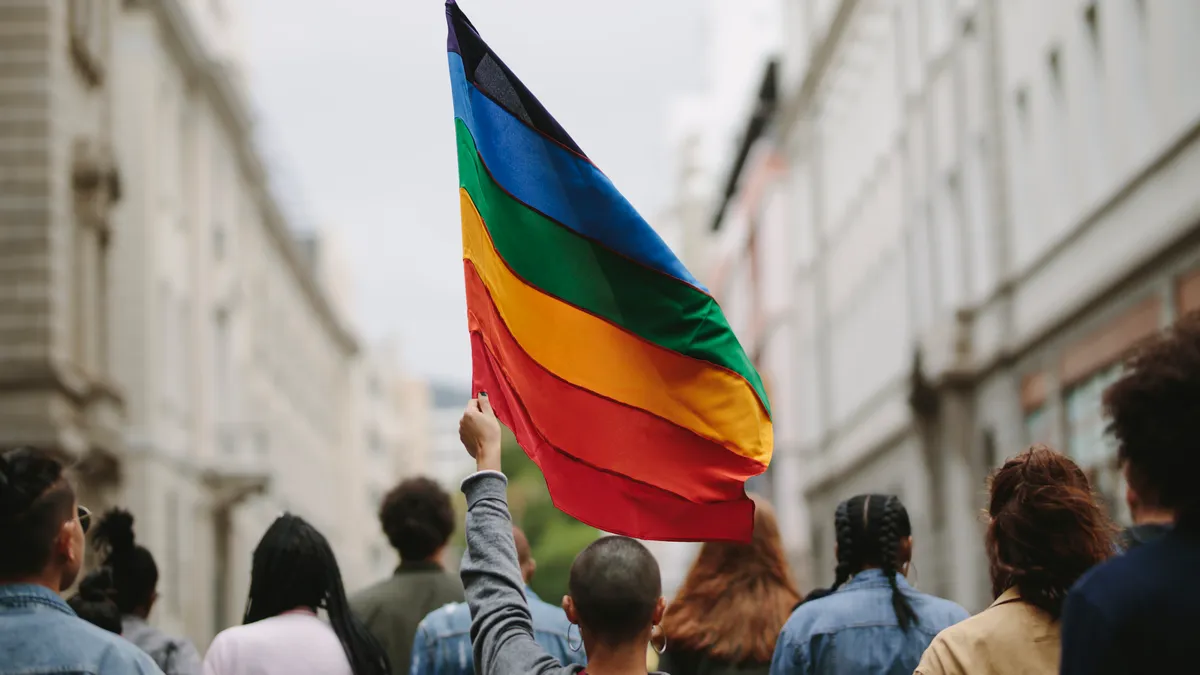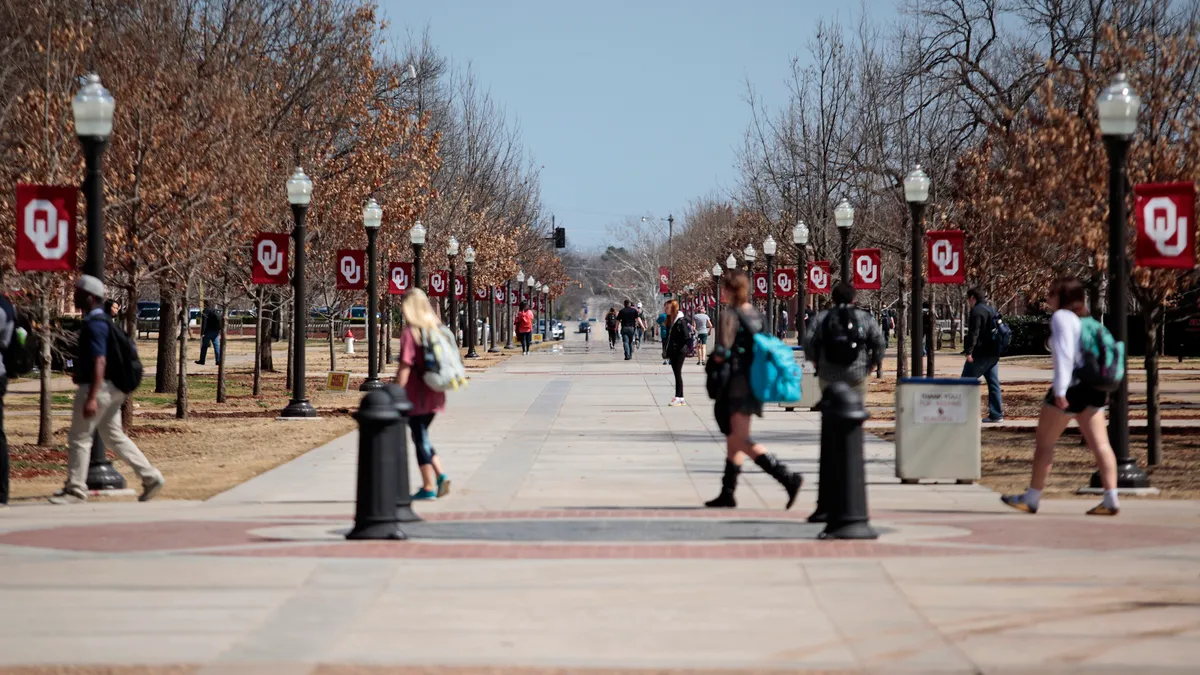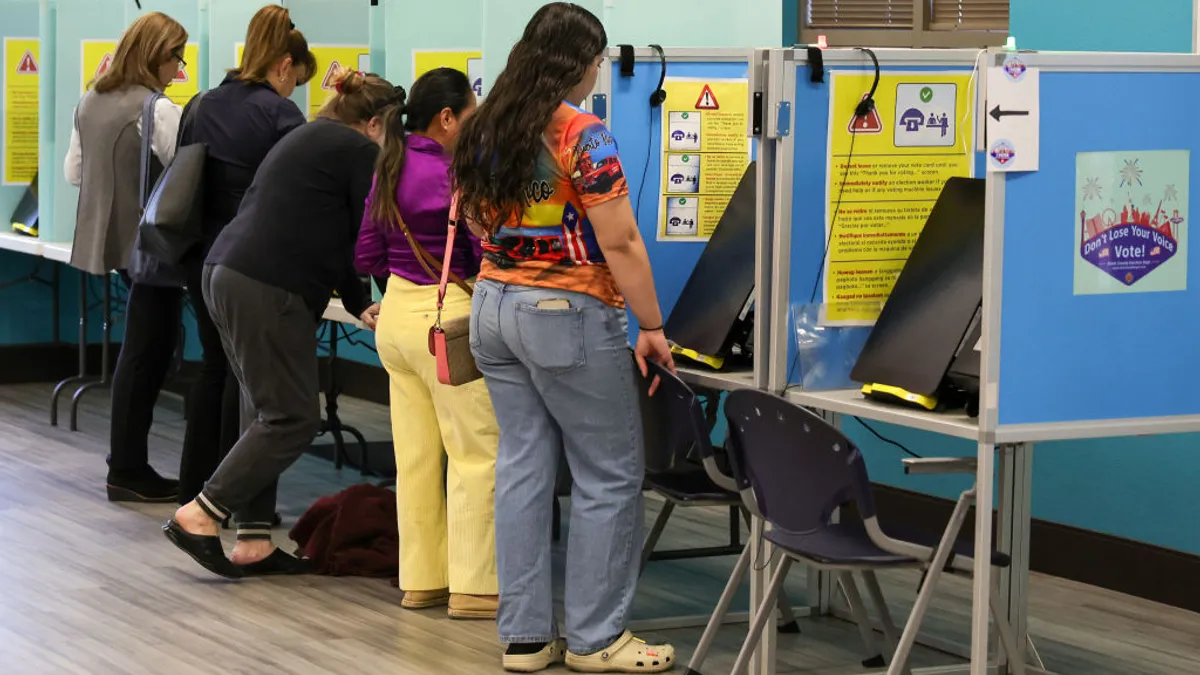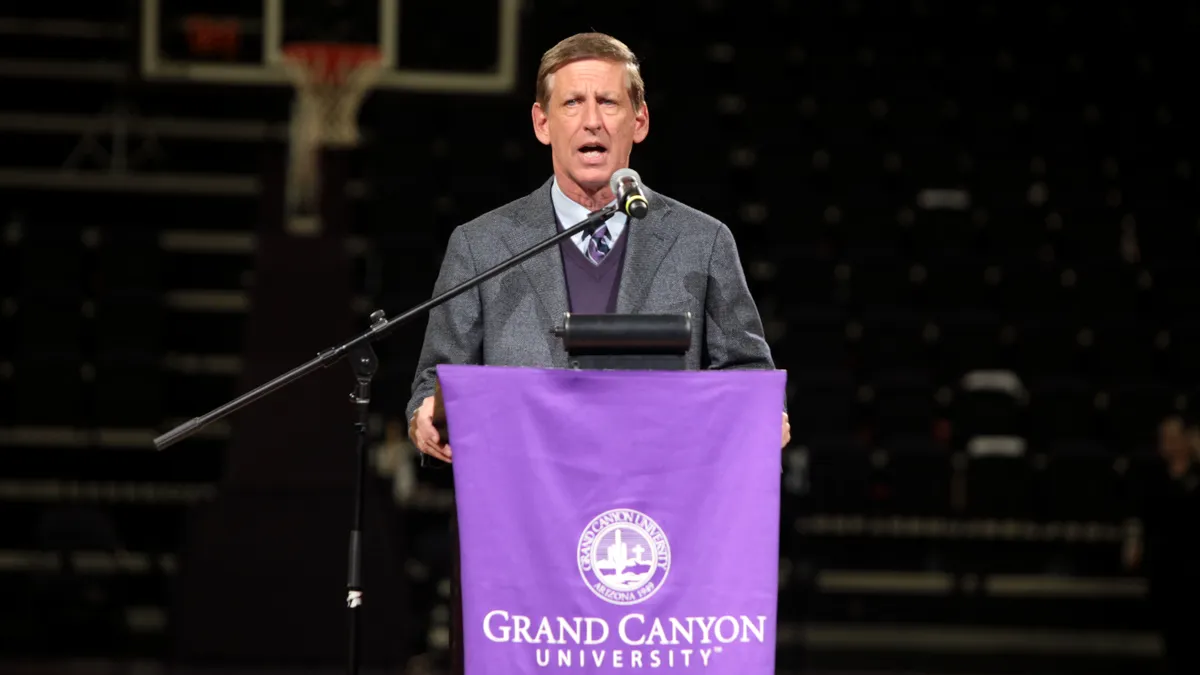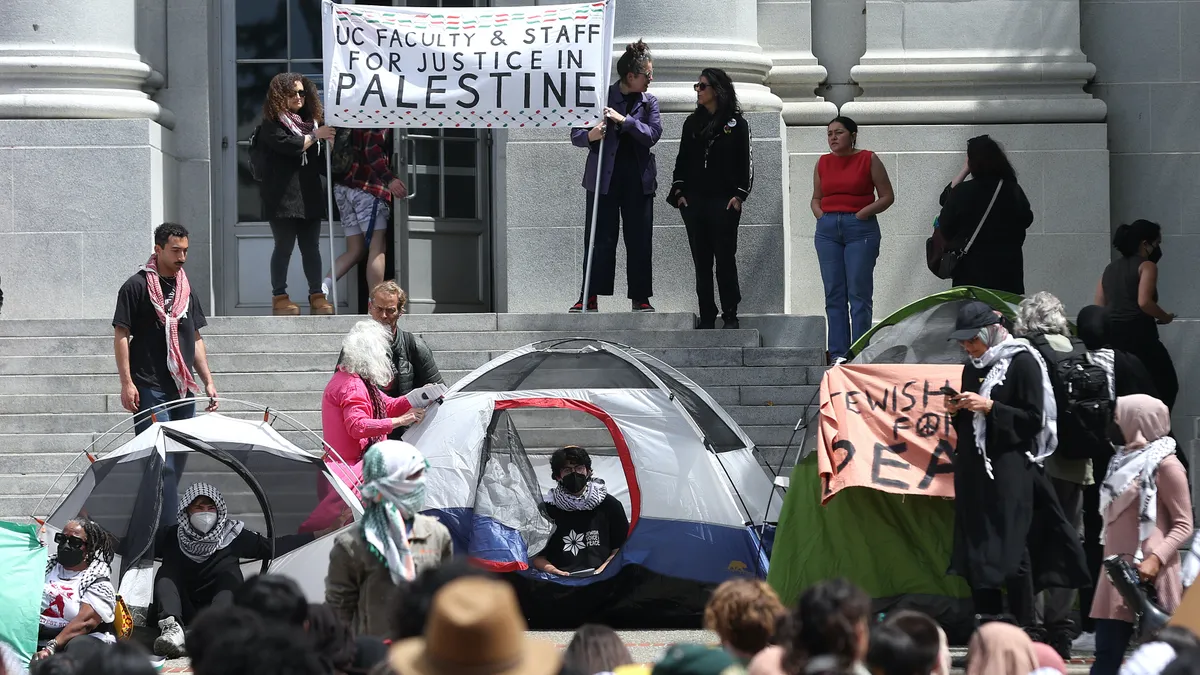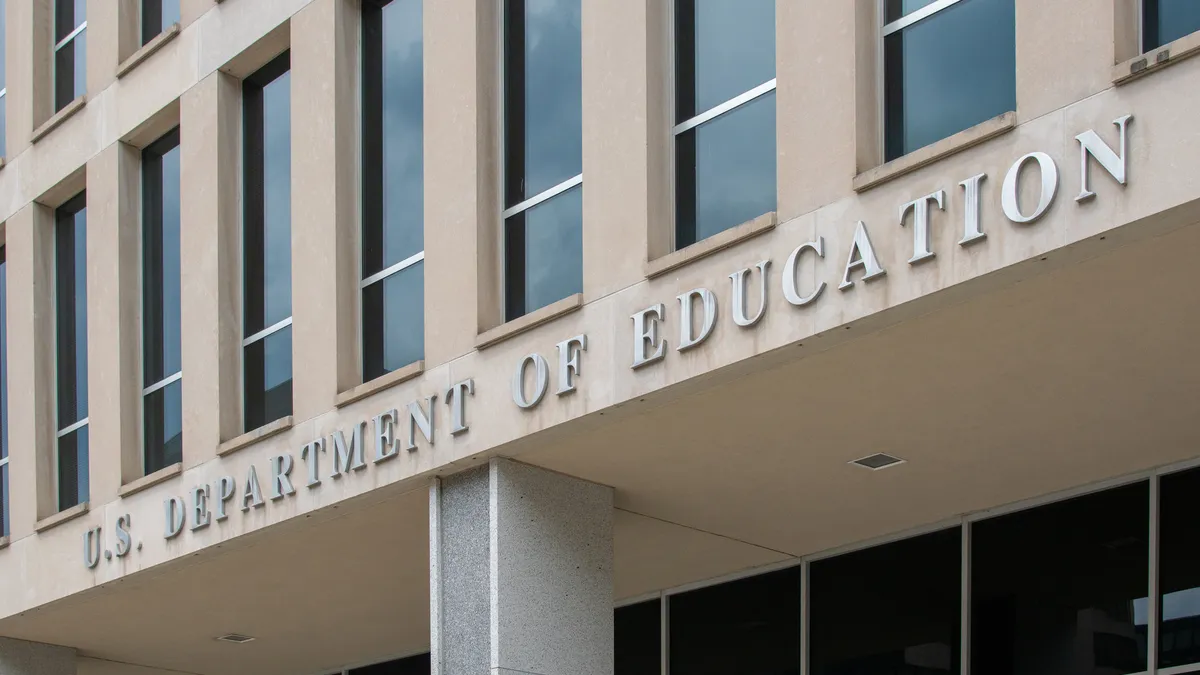Some legal experts say a new federal court ruling striking down pro-LGBTQ employment policies from the Biden administration may spell trouble for similar guidance from the U.S. Department of Education and its mammoth regulatory proposal on Title IX.
A federal judge in Texas delivered that big legal blow to the administration Oct. 1.
District Court Judge Matthew Kacsmaryk threw out guidance documents from the U.S. Equal Employment Opportunity Commission stating that employers should allow transgender workers to access restrooms and facilities aligned with their gender identity. Attacks on one’s gender expression or use of pronouns could also constitute discrimination, the guidance said.
To support these policies, the administration drew on a landmark U.S. Supreme Court decision from 2020, Bostock v. Clayton County, which extended protections in federal employment law to LGBTQ workers.
Kacsmaryk, who was nominated by former President Donald Trump, didn’t buy this legal interpretation.
He said in his opinion the Biden administration radically misconstrued the high court’s ruling. Bostock protected LGBTQ workers but not their “correlated conduct,” like the way they dress or which bathroom they want to use, according to Kacsmaryk. He also said the guidance in question was substantive enough that the administration should have implemented it through the regulatory process.
Thus, Kacsmaryk ruled, the EEOC guidance is unlawful. Texas Attorney General Ken Paxton, who sued over the guidance, celebrated, saying in a statement the Biden administration’s “attempts to radicalize federal law to track its woke political beliefs are beyond dangerous.”
The administration didn’t just weave the Bostock ruling into the EEOC guidance, though.
The U.S. Department of Education also applied it in similar guidelines from June 2021 finding that Title IX — the federal law banning sex discrimination in federally funded schools — shielded gay and transgender individuals. And references to Bostock are littered throughout Education Sectretary Miguel Cardona’s proposed Title IX rule, which would direct how colleges must investigate and potentially punish sexual violence, but also cements protections for LGBTQ students.
The Texas judge’s ruling was actually relatively narrow, said Jake Sapp, Austin College’s deputy Title IX coordinator and chief compliance officer, who has extensively studied legal matters concerning the antidiscrimination law.
Kacsmaryk found that Bostock specifically did not apply to certain “conduct,” like pronoun usage, but he did not rule that the conduct wasn’t protected whatsoever. The Biden administration could pursue some other legal argument if it sought to protect LGBTQ individuals, Sapp said.
That doesn’t mean other Biden administration policies are safe. The administration's attempts to pursue guidance on any issue instead of going through regulatory proceedings are “vulnerable,” according to Natasha Baker, managing attorney at the Novus Law Firm. Given the conservative leanings of the judiciary — including the U.S. Supreme Court — judges are more likely to throw out policies in guidance and say they needed to be worked into a formal regulation, she said in an email.
Already, another federal judge in July blocked the Education Department from enforcing in 20 states its guidance that Title IX extends to gay and transgender students. Those states had sued last year, arguing the agency overstepped its authority.
And so rulings like the one in Texas are “definitely going to be used in attacks against the Cardona-proposed Title IX regulation,” Sapp said.
The Education Department did not provide a comment by publication time.
Brett Sokolow, president of the Association of Title IX Administrators, said, however, that he thinks the ruling will have little bearing on the department’s proposed regulation.
He said the argument that the administration should have pursued regulatory action instead of the less-formal EEOC guidance doesn’t apply to the draft Title IX rule, which is now going through that regulatory process. And the Education Department has interpreted legal standards differently from courts before, he said.
A court would have to rule that Title IX does not cover gay and transgender people’s conduct, Sokolow said. He said he wasn’t persuaded by the Texas ruling that conduct like bathroom use and one’s identity are separate.
“Legally it’s so weak,” he said. “To me conduct implies choice — can you divide the status of a trans person, or a trans person who pees? It’s inextricably linked to their gender.”



